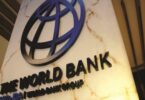The Oil output: This is the most important assumption in the budget as it drives the revenues that will accrue to the federation especially the foreign currency revenues Nigeria has budgeted a xxx mbpd figure.
Nigeria’s Foreign currency earning is important because the nation is exposed to dollar-denominated Eurobond debt at commercial rates.
Nigeria is also a huge importer of food and currently fuel, thus the dollar revenues from or serve as a guarantee that imports can be paid for.
Dollar revenues are a function of international oil prices and the volume of oil exported via official means; Nigeria has no control over international oil prices but certainly has control over the volumes pumped.
The last reported numbers of output from Nigeria are put at xxx this is well below the 2028 figure of xxx mbpd. Oil output is low because of oil theft and illegal bunkering in the Niger Delta.
Nigeria by placing a target of xxx in 2024 is admitting it can’t even get back to its numbers in 2028, even as its $ obligations have increased.
A big risk factor to this is that OPEC the oil cartel that Nigeria is a member of has announced an output cut to Nigeria to 1.5mbpd. OPEC is doing the right thing as a reduction in oil output will stabilize falling prices.
The 2004 budget has assumed that inflation will be xxx. The latest Nigerian Bureau of Statistics readout of inflation in xxx shows headline inflation at xxx with food inflation at 30%.
For Nigeria, the Consumer Price Index which tracks inflation by comparing the price rise in a basket of goods and services is made up of food items by 51%.
The cost of food in Nigeria by the NBS is estimated as about xx of the household budget. Thus, food is a key cost and expense item in Nigeria to the extent that inflation in Nigeria is driven by hikes in food prices, which is in turn driven by insecurity in the main food baskets and a breakdown in infrastructure to transport food to the cities.
To what degree can monetary policy fix high food prices? If the CBN can successfully fight monetary inflation caused by excess liquidity, can raising rates raise the output of tomatoes in Nigeria?
Nigeria is estimating the economy will grow by xx in 2024, when compared to average growth rates from xxxx to xxxx this is very anaemic.
The population of Nigeria is estimated to grow by xx% annually, thus an xx% estimated growth is running well below the population rate and thus per capita will not CHECK this.
Nigeria sterilizes her oil receipts by implementing a benchmark price of crude oil. in practice, the budget will adopt a fixed revenue price for crude oil and that is the inflow that flows to the budget.
Any excess above that limit goes to an “Excess Crude Account” which acts like a memorandum “savings account.”
The benchmarked level is thus very important, a high benchmark means potentially more revenues flow to the MDAs and the ECA will receive less but if the oil prices fall, then the budget deficit will rise as the MDA will have to borrow to meet expenditures that have been earmarked based on a high oil benchmark.
The reverse is the same, a lower more prudent benchmark, means potentially fewer revenues flow to the MDAs to spend and more funds flow to the ECA.
The key word here is prudence since spending is based on projected revenues and projected revenues will rise as a benchmark is lowered.
The 2024 has adopted $xxx as its benchmark, it looks prudent as average oil prices in 2023 have been at $xx but now showing weakness necessitating an OPEC+ cut in output.
Risk of course remains that the oil price falls, thus pressuring the benchmarked price set in the budget.
The exchange rate is the report card of the economy. The 2024 budget is proposing an exchange rate of $1:xxx this is ambitious as the rate in the parcel market is well about $1: N1000.
The calculation is simple, net exports will straighten the naira. The 2024 exchange projection is thus an assumption that Nigeria will post a net export number that will include invisible without restrictions.
This is a tall order, as the foreign education and health forex requests are a huge drain on the reserves plus, we have seen a fall in oil exports.
Of course, “exports” will also include Remittances FDIs and FPI inflow as well and if the macroeconomic picture starts to stabilize, this inflow will increase. Thus, ambitious but very possible.







